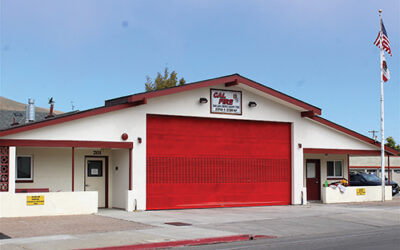Are you planning on building a new house? The State might have a way to subsidize it, if you shun using natural gas for heat, cooking and hot water.
The California Energy Commission is taking applications now for a piece of a $58 million grant pie available to builders and developers to help them move away from gas appliances and make their buildings all electric and “climate friendly.”
The so-called “California Electric Homes Program” or CalEHP, “helps advance the state’s energy efficiency goals, including reducing greenhouse gas emissions from buildings by spurring significant market adoption of all-electric construction and on-site energy storage,” the CEC said in a news release.
“The program offers financial incentives and technical assistance to builders and developers of new, market-rate homes with all-electric appliances and equipment.”
Grant funds are on a first-come first-served basis and the program is planned over the next 5 years or until the money is all spoken for.
With construction costs and the price of land at extreme highs, the grants aren’t for a whole lot of money but every dollar saved can help with affordability.
“In 2023,” the CEC said, “incentives for multi-family and single-family dwellings start at $1,750 and $3,500, respectively, per residential unit. Additional incentives are available based on geographic location and the installation of above-code measures such as energy storage.”
The program is meant to move the agenda of climate change forward and to reduce so-called greenhouse gases — carbon dioxide in the case of natural gas — “by encouraging the use and acceptance of all-electric construction practices and focusing on energy savings.
Participating projects are required to install:
• Heat pumps for space and water heating;
• Induction cooking;
• Thermostatic-mixing valves;
• Segregated circuits; and
• Communicating thermostats.
The program website (Google: CalEHP) has information on incentives, technical assistance and building project requirements, as well as links to an online application and program contact information.
CEC Commissioner, J. Andrew McAllister, said, “Electricity is the backbone of California’s clean energy transition. All-electric buildings are simply a better product. They are healthier for occupants and save energy by using the most efficient technologies.
“CalEHP is helping accelerate all-electric construction so that more Californians can experience the benefits of low-emission living.”
CalEHP is part of the CEC’s “Building Initiative for Low-Emissions Development” Program (BUILD) “that offers $60 million in financial incentives and technical assistance to builders of new, all-electric homes for low-income residents.
“Each eligible developer can use up to 300 hours of free building electrification technical assistance and up to $2 million in incentive monies.”
As of July 17, BUILD “has awarded $10.8 million for 21 low-income multi-family projects, with another $23 million requested for 60 projects,” according to the CEC.
The goal of this and other climate change targeting programs is to make all-electric construction a normal part of advanced building designs and provide market demand for better and better, more energy efficient appliances for homes.
“The barriers to building de-carbonization are falling in California,” the CEC said, “thanks to new developments in technology, updates to the state building energy efficiency standards’ Energy Code, and programs such as CalEHP and BUILD.”
There’s even help for owners of existing homes to de-carbonize their abodes. “For homeowners of existing buildings, funding from the CEC’s Equitable Building De-carbonization Program, which will pay for low- and no-cost retrofits and incentives, and laws such as the [Federal] Inflation Reduction Act address the same issue,” according to the CEC.


